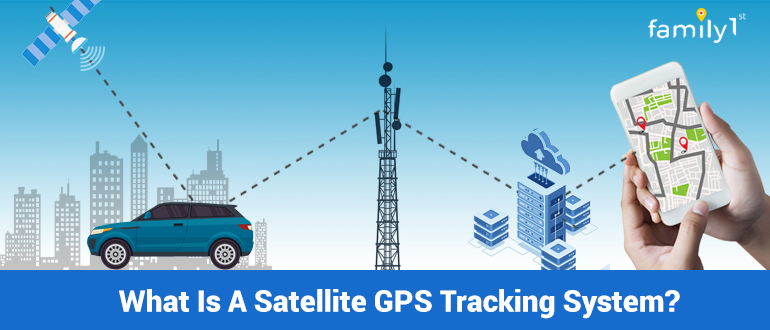Comprehending GPS Tracking: Technology, Applications, and Benefits
Comprehending GPS Tracking: Technology, Applications, and Benefits
Blog Article
Navigating the Future of GPS Tracking: Developments, Challenges, and Opportunities Ahead
As we stand at the crossroads of technical innovations and societal effects, the landscape of general practitioner tracking is poised for a transformative trip in advance. The development of GPS innovation has been quick, introducing a brand-new period of real-time monitoring abilities that assure unprecedented levels of precision and effectiveness. Nonetheless, with great technology comes wonderful obligation, as information personal privacy issues impend huge and safety and security difficulties in general practitioner tracking raising pertinent questions regarding protecting sensitive details. Yet, amidst these difficulties exist hidden opportunities waiting to be checked out, providing a peek into the untapped possibility of a market at the edge of change.
Development of GPS Technology
Created for armed forces purposes, GPS technology has actually developed to end up being a common device in various markets, including transportation, logistics, farming, and personal navigation. Early General practitioner systems were characterized by restricted coverage, reduced precision, and bulkier hardware demands.
One secret milestone in the development of GPS modern technology was the advancement of Selective Availability (SA) in the 1990s, which purposefully deteriorated the accuracy of private general practitioner signals. The discontinuation of SA in 2000 significantly improved GPS precision for civilian individuals. Succeeding advancements, such as the release of extra satellite constellations like Galileo and BeiDou, have further boosted GPS protection and accuracy, making it a crucial device in day-to-day life. As general practitioner technology remains to advance, we can anticipate further renovations in effectiveness, protection, and accuracy, opening brand-new possibilities for technology and applications across different sectors.
Real-Time Tracking Improvements
Structure on the innovations in GPS innovation that have actually revolutionized accuracy and insurance coverage, real-time monitoring has actually become a crucial location of technology with extensive effects throughout various sectors. Real-time tracking innovations enable organizations and organizations to check automobiles, personnel, and possessions instantaneously, giving important understandings for decision-making processes - gps tracking. By leveraging real-time information, business can boost operational efficiency, improve customer service, and ensure the safety and security and safety of their assets
One of the vital developments in real-time monitoring is the combination of expert system and maker learning algorithms, which make it possible for anticipating analytics and anomaly detection. These capabilities enable for aggressive maintenance scheduling, route optimization, and risk reduction approaches. Furthermore, the evolution of real-time radar has resulted in the advancement of customizable control panels and mobile applications, empowering customers to accessibility essential info anytime, anywhere.
Data Privacy Concerns

Information privacy issues incorporate numerous facets, consisting of the storage, sharing, and retention of area data. Services have to execute durable safety measures to protect general practitioner monitoring data from cyber threats and data violations. Transparent plans regarding information collection practices and the purpose of tracking are necessary to build depend on with consumers and ensure compliance with data defense regulations.

Safety And Security Obstacles in GPS Monitoring
Dealing with information privacy worries in GPS tracking is elaborately connected to reducing the protection tests that develop from possible susceptabilities in the technology. One of the main safety obstacles in GPS monitoring is the threat of unauthorized my explanation access to sensitive area information.

An additional protection obstacle is the capacity for spoofing or jamming GPS signals. Applying durable security, authentication measures, and signal confirmation procedures are critical steps in attending to these security difficulties in GPS tracking.
Arising Opportunities in the Industry
The burgeoning area of GPS monitoring technology offers a myriad of encouraging opportunities for market growth and innovation. One key chance depends on the development of general practitioner tracking applications beyond conventional sectors. Industries such as logistics, transportation, and fleet management have been very early adopters of general practitioner technology. Nevertheless, arising possibilities are now emerging in locations like healthcare, farming, and ecological monitoring. GPS monitoring can change client treatment by enabling remote monitoring of crucial indicators and ensuring prompt clinical assistance. In farming, general practitioner site link innovation can maximize plant management techniques and improve total return. Additionally, ecological surveillance can benefit from GPS monitoring by allowing real-time data collection for environment study and preservation efforts.
In addition, the boosting need for connected gadgets and IoT solutions offers a ripe chance for GPS tracking companies to increase their offerings and develop ingenious options that provide to a more linked world. By utilizing on these emerging chances, GPS tracking firms can position themselves for continual development and success in the dynamic landscape of the market.
Conclusion
In final thought, the future of GPS monitoring is noted by continual development and advancement in technology. As the sector moves onward, browsing these challenges will certainly be important to guarantee the ongoing development and success of GPS monitoring innovation.
With excellent technology comes wonderful responsibility, as information personal privacy worries impend large and security obstacles in General practitioner monitoring raise essential inquiries about guarding sensitive details.With the rapid proliferation of General practitioner monitoring technology in different industries, dealing with data personal privacy issues has become an important essential for both businesses and customers alike. The collection of area information with General practitioner tracking increases considerable personal privacy problems, as it makes it possible for the surveillance of individuals' behaviors and motions. Services utilizing GPS tracking need to focus on securing this data to stop unapproved accessibility or abuse that could jeopardize individuals' privacy rights.
Services must implement robust security procedures to protect GPS tracking data from cyber threats and information violations.
Report this page